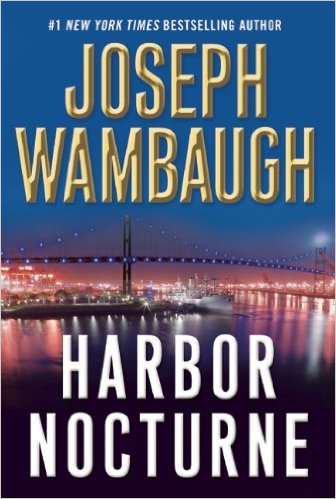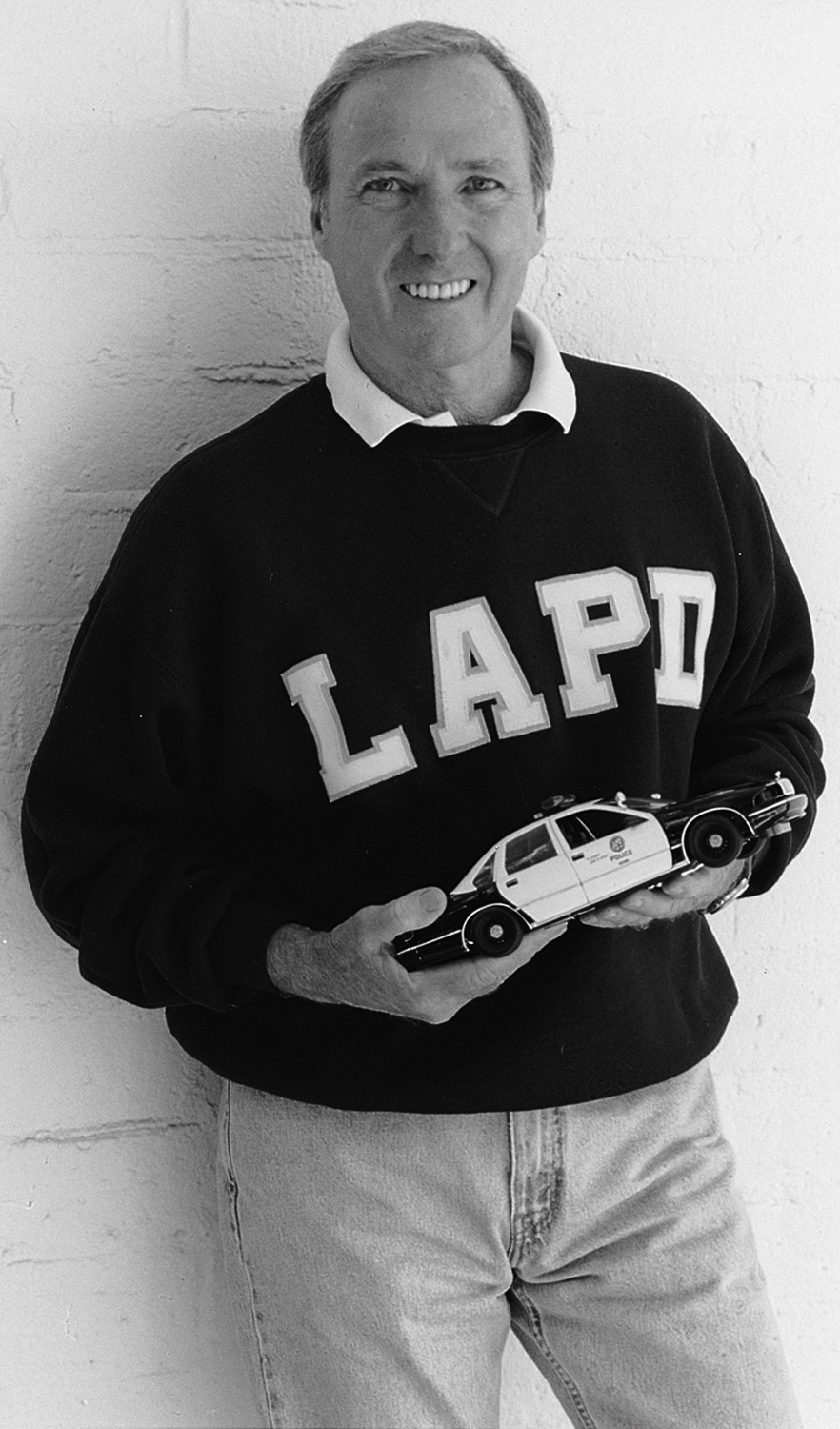



HARBOR NOCTURNE
May 2012
Anyone can write a book. It’s easy. All you need is an idea, time and a computer. Now when it comes to writing a book that is interesting, well done and commercially viable, “easy” all of a sudden becomes much harder, if not borderline impossible.
I had no idea how hard writing a commercially viable book was until I tried to do one myself. Since they say write about what you know, somewhere around 1998 I crafted this grand idea to write a comprehensive book on SDPD history. In retrospect I was probably too stupid to realize I could fail. So, with my idea firmly locked in my head, I then spent the next seven years griping, moaning and cheering myself on as I somehow managed to write a total of three books on the SDPD. The latest of which will be released on July 23, 2012, and will be in local bookstores as well as online.
Ok, enough of the cheap, shameless plug. My writing projects are history books. If you know the subject, and can make your subject mildly interesting, the project will succeed. At least to the five history geeks who will go out and buy the book.
If you really want a challenge – the intellectual equivalent of climbing Mt. Everest - try writing a novel.
There's two ways to get published. The first is to sell the project to a publisher who will then recoup their investment by selling the book to the public. This is called “traditional publishing” and was about the only way to get onto the book scene until about 20 years ago.
The second way is to self-publish. This is where you locate a printer, pay for the project to be done then you sell it yourself. The advent of the Internet has also allowed authors to self-publish through "POD" or Publish on Demand. This is where your book is kept in electronic form until an online customer actually buys it. The book is then printed, dropped in the mailbox and in the reader’s hands in a few days.
Option two is a much easier way to get yourself out on the market but, without an industry quality standard, traditional brick and mortar stores such as Barnes and Nobel will rarely, if ever, consider carrying your work. I bring this up because Detective Sergeant Wes Albers has had his novel traditionally published. The book, which was released in March of 2012, is “Black and White” and follows the adventures of San Diego police officer John Hatch. I haven’t had a chance to read it yet however the feedback I've been hearing is that the book is excellent.
While police authors are not uncommon these days, most law enforcement novels are written by people who've never been n the business. Dashiell Hammett, a man considered the master of the hard-boiled detective novel, never wore a badge in his life. His closest police experience came from working for the Pinkerton private detective agency from 1915 – 1922. Hammett later went on to author such best sellers such as the Maltese Falcon – a book that later became the classic Humphrey Bogart film.
According to the Guinness Book of World Records, crime author Agatha Christie is the best-selling novelist of all time. Her novels have sold roughly four billion copies, and her estate claims that her works rank third, after those of William Shakespeare and the Bible, as the most widely published books.
Bestselling crime authors T. Jefferson Parker and James Ellroy never spent a day behind the wheel of a black and white; although Ellroy willing admits to having been in the backseat on more than one occasion. Those adventures will be the focus of a future Crime Files.
The world’s best-selling crime author/former police officer is San Diego transplant Joseph Wambaugh. The former US Marine who went on to join the LAPD burst on the writing scene more than forty years ago with his bestselling novel The New Centurions. Unlike many police books which often portrayed officers as invincible superheroes whose only vice might have been a few too many nips on the bottle, Wambaugh introduced flawed characters, sometimes on the verge of complete disintegration from societal standards. His world was an inside look into the chaos of police work and it was completely contradictory to the squeaky clean, always professional Dragnet/Adam - 12 image LAPD Chief Bill Parker had spent a professional lifetime crafting.
I grew up watching Adam-12 and Dragnet. Later, I became friends with Martin Milner, the actor who played Officer Peter Malloy during the seven year run of the television series. Officers Reed and Malloy were always squeaky clean - beyond reproach in everything they did. Once a week these LAPD officers solved almost every societal problem in 23 minutes without commercials. The only knock at them was they never did paper. They were poster boys for Bill Parker's vision.
Even so, I make no secret I've always been a fan of Joseph Wambaugh and his flawed characters. I was fascinated and sometimes repulsed at the mad world in which they dwelled. For me there was never a contradiction. Adam-12 was entertainment – Wambaugh was real.
Later I became personally acquainted with Joseph Wambaugh. I found him to be both incredibly interesting as well as intellectually intimidating. The man has a gift for being able to absorb stories and events – some of which we would casually pass by with little after thought – and then craft them into best-selling adventures.
I can still recall in the early 2000's hearing Joe Wambaugh had retired. I was disappointed. Then, came a steady stream of additional best sellers. All I can say is I'm grateful for people who have an open mind on their career.
Wambaugh's latest book is entitled Harbor Nocturne. Like the Hollywood Station trilogy released in 2006, the books bring the master storyteller back to his roots of Los Angeles and even have some of the Hollywood Station series characters in it.
Harbor Nocturne apparently had at least some inspiration from a recent Crime Files article. In that edition I had profiled the strange case of Dr. Ronald Brown, a man who, for lack of a better term, was a modern day Dr. Frankenstein. Dr. Brown had been convicted of second degree murder after gangrene took the life an amputation patient. Where it got weird is that the patient - 79 year old Phillip Bondy - had paid Dr. Brown to cut off his healthy leg because he suffered from a medical condition that caused him to want to have his limbs removed.
So what do other writers have to say about the book? Bestselling author Stephen King wrote “Joseph Wambaugh has been one of those necessary voices through the years–sometimes angry, sometimes illuminating, often wise, always funny and fascinating–and without him, the lives of many readers would be smaller. Including mine.”
Yeah, it's that good.




